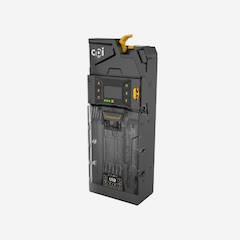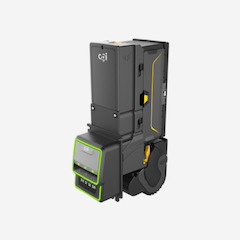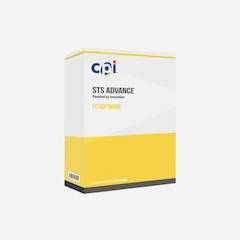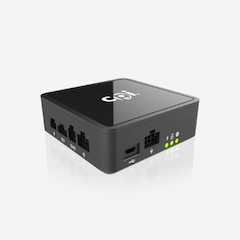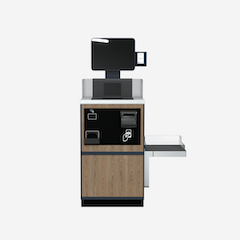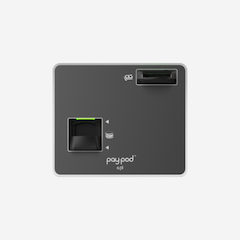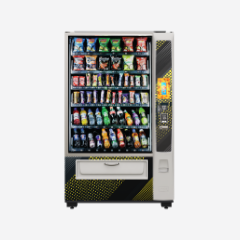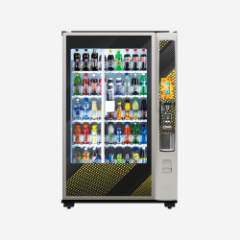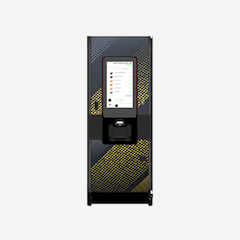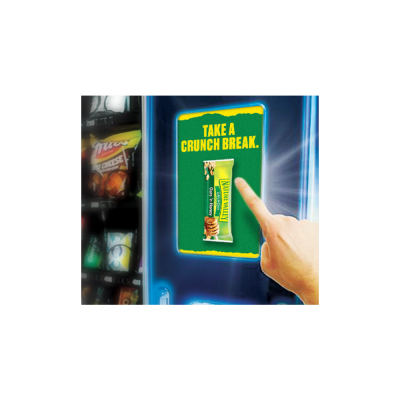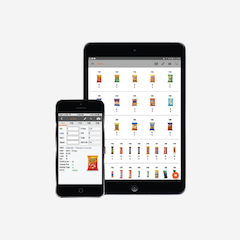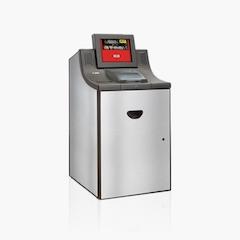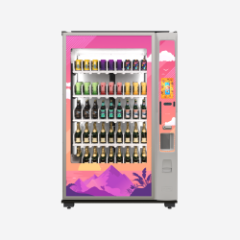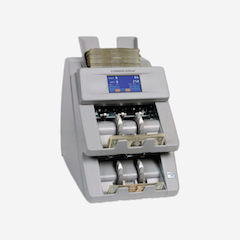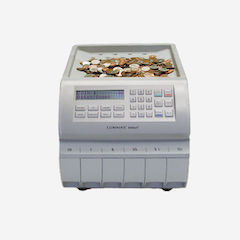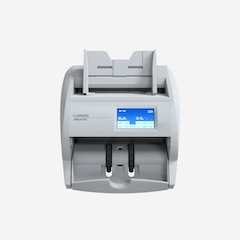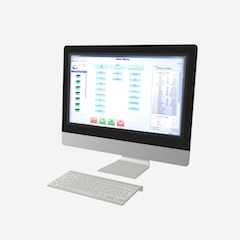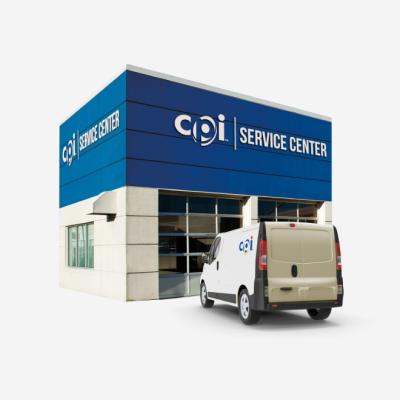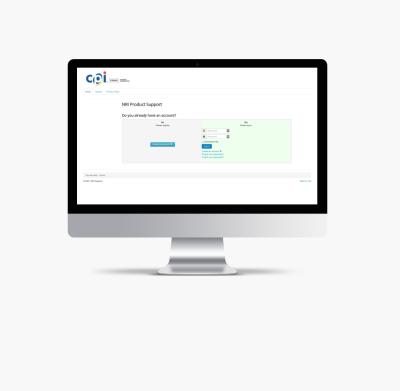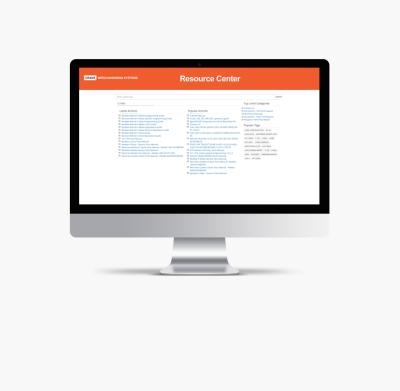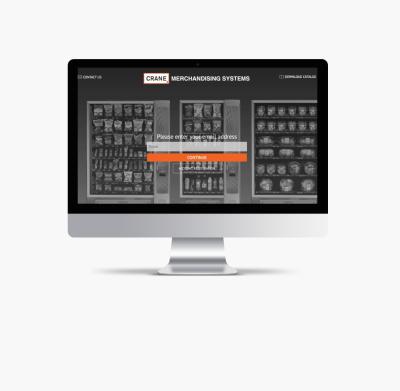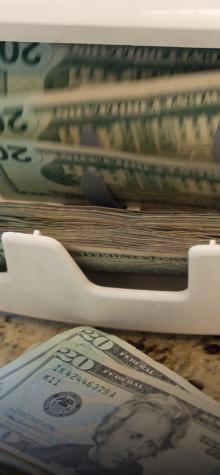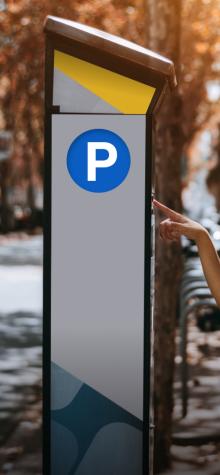Market Thought Monday
Gaming - Q & A with Molly Dugan
As consumers grow accustomed to faster and easier transactions, casinos are recognizing the need to adopt technology that makes payment smoother and more efficient for their patrons.
For the first in our series that we’re calling “Market Thought Mondays”, we sat down with Molly Dugan, CPI’s Strategic Marketing Director for Gaming, to get her insights into the gaming market, including changes within the market, what a cashless future looks like for casinos, and more.
As someone who has been working in the gaming industry, what changes have you seen in the past few years?
From our perspective—primarily being focused on the payment space—I think the big obvious change (and really the one that everybody's thinking about) is consumer's preferences in terms of how they want to make transactions. We've seen in every industry, from retail to transportation, to vending and merchandising, this shift from traditional forms of payment like cash, and then in the casino, the Tito ticket. And seeing this evolution continue now into mobile wallets and cashless, in different ways that cashless is manifesting in different markets. So, the big obvious thing that's changing is how we're going to continue accepting those transactions at the slot machine, but also in online gaming.
What does “cashless” mean for casinos as they play for the future of their operations?
I think one of the big impacts is consumer preference, and right now we're starting to see consumers change their expectations relative to casinos. Now obviously when we look at digital payments in other markets like retail for example, people's preferences have shifted more dramatically towards cashless payments than we've seen in casinos. But as consumers start to demand cashless more in their gaming lives, casinos are going to have to adopt. And naturally, there's regulatory challenges to consider so far that there's only certain types of solutions that are approved in certain jurisdictions and everyone’s racing to innovate the next generation of that. But we also want to define, “What is the best payment experience?” Cashless may mean a mobile wallet right now, what is it going to mean next year? What's it going to mean in the next five years?
Operators will have to work with partners and innovators in the space to define what that best experience is for their patrons, and then to make sure that all of their infrastructure from the CMS system to the slot machine itself, the bill validator, all the technology around it, is ready to accept whatever that future of payments may be.
Where do you think gaming operators should start when exploring cashless options?
The best place to start is with the partners you're already working with, and so I think CPI is a great place to start because we're already managing the payments for all our customers for the vast majority of the casino industry. Start with payment and talk to who you already know: your cash access providers. There's a lot of solutions out there. Start close to home and kind of build on what you already have. I think that can make that process a lot easier than trying to start from scratch and look at the vast universe of options, so to speak.
CPI in gaming is primarily known for cash, but we have cashless solutions in retail, and in transportation that accept mobile payments, card payments and pin on glass. So, although we're primarily recognized as a cash provider in the gaming space right now, we really are your hub for anything payment related. We want to build our technology around that existing technology in your casino, which in our case is the bill validator: the SC advance. We know payments through and through everywhere else we serve. And now as the gaming market continues to evolve, we're at the forefront of that evolution.
What changes do you see in the next couple of years for the gaming industry?
What I’m interested to see is continuing down this path of cashless, kind of what I mentioned earlier. Right now, cashless means mobile payments, but there are some barriers to that. There's some consumer adoption. It's an extra space to transact; loading your wallet and putting it on the machine. How will we remove those barriers? Will we start to see other forms of payment proliferate? Whether that's direct debit at a slot machine, whether that's some other form of biometric payment, this I think—way down the road from a regulatory standpoint—is how we continue to make that process more and more seamless and what kind of innovation comes out of those drivers.
The continued focus on personalization for players should be fascinating, and if you look at any other element of our technology lives as people, Amazon's the typical go-to example. Amazon knows exactly what I want to purchase, where it's going to come, and gives me recommendations based on my behaviors and where there's already a ton of software solutions that are working to optimize your player experience.
It’s no surprise that making casinos more and more and more personalized creates a better experience. So, finding ways to make every time a patron sits down at a slot machine, table game, or logs into their iGaming, is finding an experience that's tailored not just to their preferences, but to their spending habits and their playing habits.
Other than cashless providing an option that consumers want, what are some of the benefits to casinos?
We currently are working with Pavilion payments, and so we're integrated with their VIP mobility app. From those integrations—and what you'll hear if you talk to some of the other cashless providers as well—is that what we're seeing in casinos that have successfully deployed the solution is lift (higher revenue), and that comes from more visits per player, more spend per visit, and more time spent at a game, which is a natural byproduct of removing points of friction. When somebody doesn't have to interrupt their playing to get up and go to an ATM or the cage, they can save time and then keep that revenue in a wallet. From there, they're more likely to spend it and have an easier transaction process overall. There are tons of benefits from a revenue standpoint, and I think we'll see there's operational benefits as well in terms of how you bring the whole property together. There are options for tipping, that you can use now with cashless wallets. You're maintaining that float in the wallet that now a player can spend at the pool or at your retail shop or at one of your restaurants. So again, it all kind of goes down to revenue, but I think as you see the way that that data can move and the way that we look at the movement, there's more to be learned about how a particular person interacts in that macro resort or gaming environment.
---
To learn more about our gaming solutions, schedule a meeting with us today.

